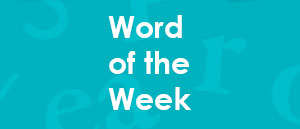Welcome to Really Great Reading's Blog
MOY Benchmarking - Is a One-Minute Oral Reading Fluency Enough?
Why benchmark AGAIN?
It’s the middle of the school year (MOY). Time to benchmark your students! Do you ever catch yourself asking, “WHY?” If so, you are not alone. Let’s take some time to explore the worth of benchmark assessments.
What are benchmark assessments?
Typically, they are interim assessments that measure students against very specific grade-level standards. They are often given at three times during the school year (BOY, MOY and EOY). They are used to recognize a student’s ability to achieve a level of proficiency for a particular subject (usually reading and math). Reading benchmark assessments often focus on fluency and comprehension. They come in many flavors; DIBELS, DRA, PALS, FAST, NWEA, AIMSweb, and more. “In most schools, the idea is to catch kids' literacy learning gaps early so we can keep them on the right track from the beginning,” says Tim Shanahan, literacy expert. Commonly, an MOY Oral Reading Fluency (ORF) score is used to identify which students may be struggling and need more support.
Why are ORF benchmarks only the first step to identifying your struggling readers?
Ask yourself, “Is the ORF benchmark giving me ALL of the information I need to effectively intervene with my students?” If your answer is, “I have no clue!” welcome to the club! The sense of empowerment we gain from identifying which students are not meeting benchmark can quickly fade when we realize we don’t know why those students are falling short. Fluency benchmarks are just meant to quickly screen students and help us understand which students are “On Track” and which students are “Falling Behind” (or are “At Risk” of falling behind). These screening benchmarks identify WHO we should be concerned about but may not tell us exactly WHY we should be concerned. They identify which kids may need extra teaching but won’t tell us WHAT to teach them.
What is the next step to determine prescriptive and targeted instruction?
How do we know what to teach? Answering that question is the role of a secondary assessment, typically a diagnostic. A diagnostic assessment can drive prescriptive and targeted instruction. This is the true power of taking this important interim step.
If your benchmark doesn’t assess for decoding and phonics, you are missing information about important foundational elements. Really Great Reading offers a free and highly respected family of word-level reading assessments that answer these key questions:
- Which students are struggling with decoding?
- What types of words are they struggling with?
- What is the source of the underlying confusion?
In just 5-7 minutes per student, these diagnostic assessments help you to be more prescriptive with your instruction and allow you to intervene and improve your students' ability to read accurately and automatically at the word level. To learn more, go to Check It Out!>>

 For students who don't meet benchmark, a secondary assessment is critical for understanding the underlying cause. To gain insight and target your intervention instruction, try administering one of our free diagnostics to identify specific word-level skills these students have not mastered.
For students who don't meet benchmark, a secondary assessment is critical for understanding the underlying cause. To gain insight and target your intervention instruction, try administering one of our free diagnostics to identify specific word-level skills these students have not mastered.
Did you know, according toMichael Graves, professor emeritus of Literacy Education, "school texts and reading materials include more than 180,000 words." Do you think it's practical for a student to memorize 180,000 unique words?


- Kindergarten Foundational Skills Survey
- First Grade Foundational Skills Survey
- Diagnostic Decoding Surveys
Use Live Assess on the Grouping Matrix to administer your MOY assessments, and your student's scores are automatically uploaded. The Grouping Matrix™ is a free, secure, student data management interface that enables you to group students according to the type and depth of their decoding difficulties. Watch a video on how to use Live Assess>>

Take the quiz! Can you read the words below? Chances are, you and your colleagues will agree on how these words sound because you have internalized the English code. However, this is not true for everyone, and especially struggling readers. Reading nonsense words such as these is one important way to help students break the guessing habit. To read nonsense words, students must use their phonics knowledge; they cannot rely on background knowledge, existing vocabulary, or context to guess the words. That’s why nonsense words play an essential role in our assessments and instruction.


Contact us anytime. Our mission is to provide educators with the most efficient and effective tools for teaching phonemic awareness, phonics concepts, word attack skills, accurate reading and fluency. Student outcomes are our number one goal. No one knows their students better than educators. Therefore, your thoughts, strategies, student successes and feedback are held in high esteem! Send us your feedback and experiences>>



